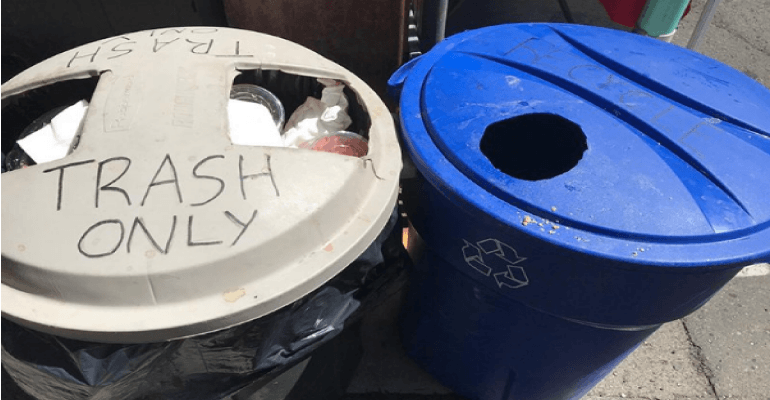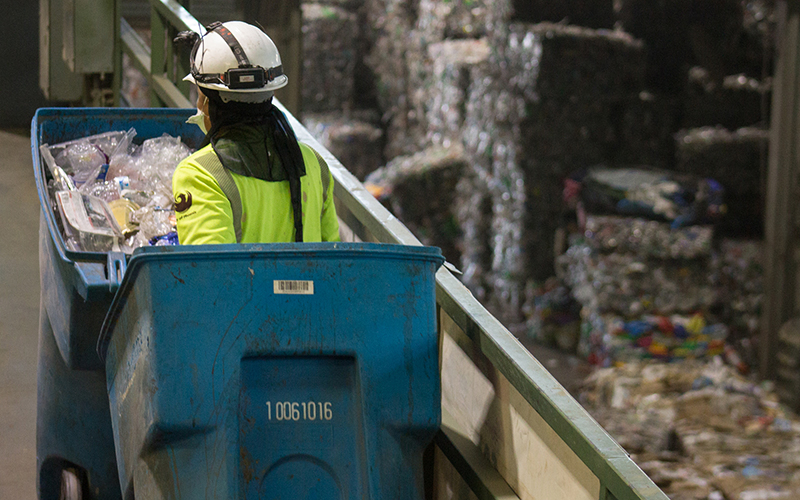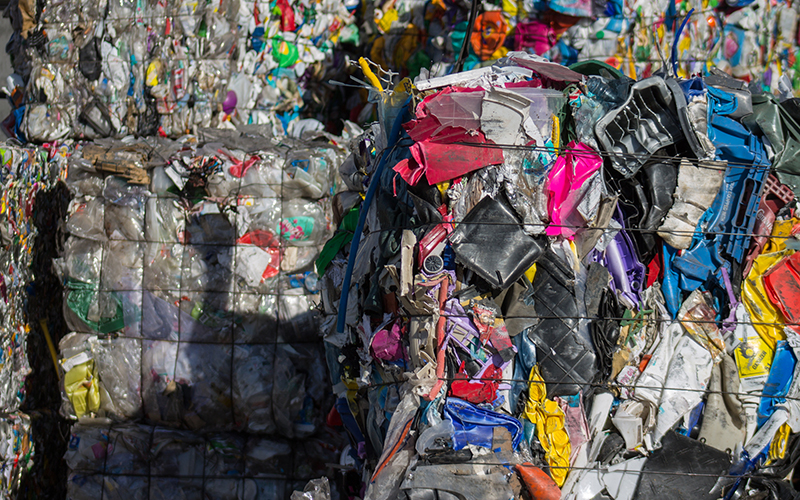
FLAGSTAFF – Americans recycle about 66 million tons of material each year, according to the Environmental Protection Agency. About one-third of it is sent to China, where for three decades the materials have been used to create new products.
But all that is changing, as China is taking drastic measures to clean up its own heavily polluted environment.
China’s new policies have led cities across the U.S. to adjust what they will accept in their recycling bins – and it means more materials will end up in landfills. In Flagstaff, for example, a new recycling ban went into effect earlier this month, prohibiting most types of rigid plastic in curbside bins.
“I think that overall, it’s probably a good thing,” said Tom Dietrich, a shopper at a recent farmers market. “If our previous policy was reliant on China being willing to trash their environment to take our stuff, and now they’re pushing back against it in order to make their place better, then good.”
Sunday marked the first time shoppers at the farmers market purposely threw recyclables in the trash.
Across the U.S., recycling gets picked up and sorted at a municipal facility. The finished bales of plastics and paper are sold to processors. China has processed roughly half of the world’s plastic and paper recyclables for since the 1980s.
But last summer, Beijing announced new standards on how much trash can be in the recyclable trash it imports. It’s based on the contamination rate, which measures how much non-recyclable material can be in paper and plastic bales. The new policy limits that to almost zero, at 0.5 percent.
Stacy Hettmansperger, a recycling plant manager in Phoenix, points to a conveyor belt carrying paper products ready for bundling.
“You can see there’s pieces of plastic,” she said. “It’s not a perfect system. So you can kind of get a sense of why contamination is a challenge. Oh, see the plastic bags?”
And while American recycling plants adjust to sorting and shipping a cleaner product, China has added to its list of restricted materials. China’s original import ban, filed with the World Trade Organization in July 2017, covered 24 materials. In April, China added 32 products to the list.
“And what China is saying is, ‘We no longer want to be the recipient of all this material,’ partially because the material isn’t always clean,” said David Biderman, executive director and CEO of Solid Waste Association of North America. “There’s a substantial amount of contamination, or garbage, mixed in with the recyclables. But also because, we believe, China has a newfound interest in protecting the environment – its own environment.”
Joe Giudice, assistant public works director for Phoenix, said his city has felt the effects of the changes.
“The impact for us has been that our plant’s operators need to be a lot pickier about the quality of the materials that they are making for sale,” he said. “And in doing so, less material is making it into the sold market than it used to.”
Western cities have been hit especially hard as they use their seaports to send their materials for processing almost exclusively in China.
Blaine County, Idaho, cut its paper recycling program in May. Cities in Colorado, Nevada and Alaska also have shrunk their recycling programs, or in some cases, closed down plants because they can’t meet China’s new standard.
“You know, the short-term reactions are hard to accept in the market where we want to recycle,” Giudice said. “We all want to recycle materials, and it’s hard to hear that plants are having to close down.”
For Giudice and the Phoenix recycling facilities, the solution is to build processors nearby instead of shipping waste plastic and paper to China.
“Like, for example, in Snowflake, Arizona, there was a mill that would buy recycled paper and remanufacture paper, but that mill closed down,” he said. “So the markets in China developed and continued to consume those products and paid the best prices. And over the course of 20 or 30 years, essentially, that’s how the market developed.”
Giudice is in the process of issuing a request for proposal to get a manufacturer to process recyclables in Phoenix. But that takes time.
In the meantime, in Phoenix, Flagstaff and a growing number of U.S. cities, recyclables are going to a landfill.


